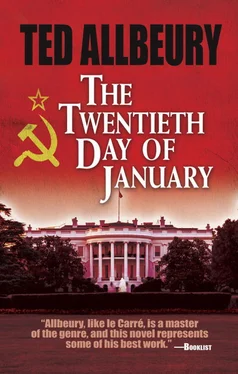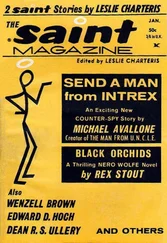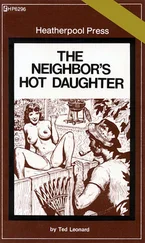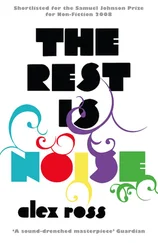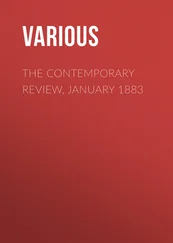“You mean somebody could…”
He couldn’t bring himself to finish the sentence, and Nolan stepped in.
“It’s possible.”
“I think I’d better stay.”
“Fine. May I use your telephone?”
“Of course.”
Nolan telephoned the house and arranged the guard detail, and then waited in Oakes’s outer office until the first man came and took over.
Nolan was making notes in his office at the house when the call came through from New York. As he heard the garbled speech he pressed the scrambler button.
“Nolan.”
“Did you hear what I said, sir?”
“No. Is that Joe?”
“No, sir, it’s Steve Langfeld. I’ve got bad news, sir.”
“Go on, then.” Nolan was aware of the hesitation in his own voice.
“Joe Steiner’s dead, sir. He was shot in his hotel bedroom.”
“When?”
“About an hour ago.”
“Were the police called in?”
“No. Not so far. But the hotel manager is very jittery. I hoped you’d speak to him. I’ve put two men there.”
“Any indications?”
“The shell’s 9mm, and a caller ten minutes earlier has been identified by the reception clerk. It was one of our friends.”
“Give me the manager’s number. I’ll phone him, and I’ll leave straight away. I’ll be at LaGuardia in about seventy minutes. Send a car for me.”
The manager accepted Nolan’s request without argument. The assurance that there would be no mention of the affair in the press tipped the balance.
Joe Steiner had one living relative, a brother. He lived in Paterson and was a sports goods dealer. Nolan drove through the night and arrived at three am. The local police had been asked to alert the brother. Minimum details to be given. He wanted, if possible, no publicity about Steiner’s death.
A man in a red tartan shirt stood in the lighted doorway as Nolan crunched in the snow from the garden gate.
“Pete Steiner?”
“That’s me.”
“Could I come in for a moment?”
The big man shrugged and walked into the hallway and through to the living-room as Nolan followed.
“Mr. Steiner, I’ve got some bad news, I’m afraid.”
“About Joe, huh?”
“Yes. He’s dead. He was shot.”
“So why tell me?”
“You’re down on his papers as next of kin.”
“Joe and I ain’t spoke a word together in ten years. We didn’t get on.”
“I see. You know how he was employed?”
“Some gov’ment agency in Washington, he said.”
Nolan suddenly felt tired and cold. The man’s indifference was unexpected. He had come out with his arguments carefully marshalled. But Joe Steiner’s only living relative didn’t care that he was dead. Nolan suddenly needed to leave, but he had to go through the routine.
“Have you any objection to Joe being buried in the cemetery at Arlington?”
“Don’t make any difference to me, mister, where he’s buried. Was there any effects?”
Nolan could feel the blood rush to his head, and he breathed deeply before he answered.
“A few, Mr. Steiner. We’ll send them to you in the next few days.”
The man folded his arms.
“Better leave it a coupla weeks. I’m going for a week’s fishin’ from Sunday.”
“We’ll do that, Mr. Steiner. Goodnight.”
“OK. You wanna cawfee or sump’n?”
“No thanks. I’ll get on my way.”
Nolan stopped the car a hundred yards from the house. He sat with his face in his hands and saw the hotel bedroom. Joe Steiner had gone to the door of his room wearing just trousers and shoes, his face half shaved, half lathered. The hole in his big white chest was neat and round and there had been no blood. Just a bruise round the small indentation. The blood had come from the hole in his throat where the flexible tube of his windpipe had been ripped open. His shoulder holster was draped over the cold tap, and his small two-way radio was on the bedside table. And the doctor had had to stitch Joe’s eyelids to keep them closed.
As the winter wind howled round the car there was just the noise of the fan and Nolan’s tears.
Nolan slept until ten at the safe-house. He stood at the window of his room and looked out at Central Park. The snow was thick on the sidewalks and there was a golden slush like brown sugar on the street. The sky was leaden, and the cars and trucks still had their lights on.
He breakfasted slowly, reading the night’s reports and half listening to the radio news bulletin.
The Dow-Jones had gone up on a White House rumour that there would be a $6 billion public works programme. But in specific areas like aircraft and electronics share prices had fallen sharply in expectation of defence budget cuts. Some commentators were forecasting that the cuts would be more like wounds. A warehouse fire near Flatbush Avenue was not yet under control but it was reckoned that the American ski team on its way to Val d’Isère had never been stronger. The Vice-President-Elect was expected to make a trip to European capitals immediately after the inauguration.
When he had finished eating he called for the tapes of the tap on the girl’s telephone and laced them up on the Revox. There was very little traffic except for the appointments made with her from a series of spurious calls by Nolan’s men to ensure that there was no interruption in the operation.
At four o’clock he pressed the elevator button for the top floor of the apartment block on 38th, and a few seconds later he was outside the door of P4.
He pressed the bell and waited. The girl who opened the door was breathtakingly beautiful, even more beautiful than in the photographs taken by the surveillance team. She was wearing an emerald-green towelling bath-robe that clashed vibrantly with her startlingly blue eyes.
“Yes?”
“Miss Jennifer Larsen?”
“It’s appointments only.” And the door swung to. Nolan’s foot prevented it from closing.
“My name is Nolan, I’m from NYPD. I’d like to talk to you.”
He saw her hesitate, and he thrust forward an NYPD identity card and badge. She leaned forward to check the photograph and then looked up at his face.
“What do you want to talk about?”
“I think it would be better if you allowed me to come inside.”
Slowly she opened the door and stood aside as he walked in. He smiled.
“My apologies for the wet, but it’s still snowing.”
She shrugged. “Take your coat off. Hang it in the closet.”
When he walked back into the living-room the girl was sitting on a large settee, her legs curled under her, and a drink in her hand.
“Help yourself,” she said, and gestured with her glass to the whisky bottle and glasses.
“I’m hoping that you can help us, Miss Larsen.”
“Jenny. Just call me Jenny. What’s it all about?”
“Do you know a Mr. Dempsey? Andrew Dempsey?”
She reached for a pack of cigarettes, took one out and lit it with a match. When there was a cloud of smoke between them she spoke.
“No.”
“Do you know your rights, Jenny?”
“Jesus, am I supposed to know every guy who comes here?”
The blue eyes were angry and defiant.
“I’ll have to ask you to get dressed, Jenny, and come with me.”
She watched the smoke curling up from her cigarette.
“Are you charging me?”
“No. Not yet, anyway. I just want you to answer a few questions.”
“What about?”
“Mr. Dempsey.”
“What about him?”
“Why does he come here?”
She turned her head and closed one eye against the cigarette smoke as she looked at him reflectively.
“You know what I do, mister. That’s why he comes here.”
“Nothing more than that?”
Читать дальше
